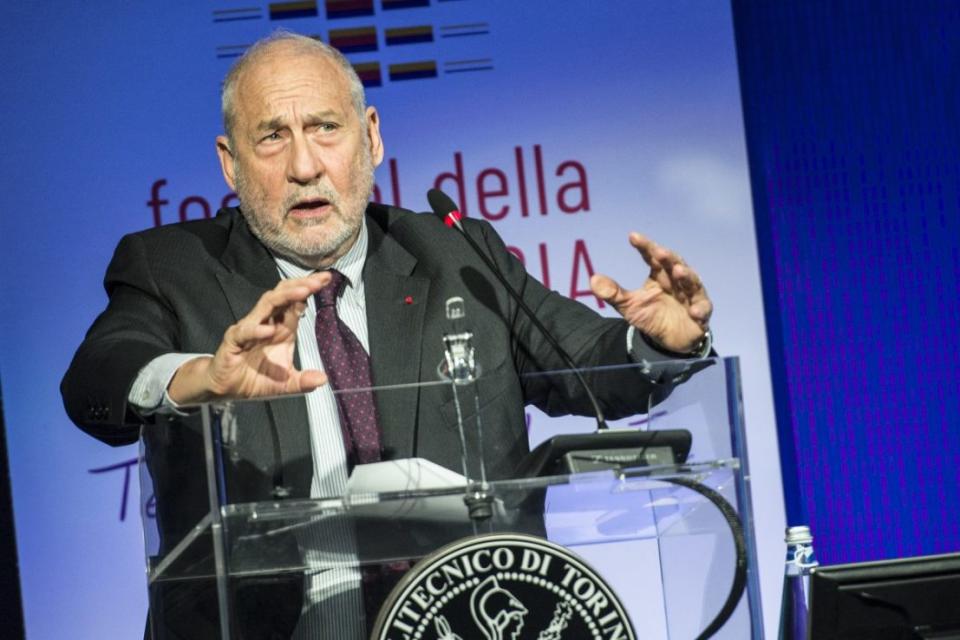Joseph Stiglitz has wooed the left, but his straw men pose a real-life threat

Nobel Prize-winning Joseph Stiglitz’s new book makes a grotesque bogeyman of ‘the right’, and it will have dangerous consequences, writes Eliot Wilson
Falsehood, said Jonathan Swift, flies, and the truth comes limping after it. The Dublin cleric would have recognised falsehood in the lazily drawn straw men of the left’s favourite Nobel Prize-winning economist, and their speed and pervasiveness present a genuine threat to London’s prosperity.
Joseph Stiglitz defended his doctoral thesis nearly 60 years ago now, and it is nearly a quarter of a century since he resigned, not wholly voluntarily, from his post as chief economist at the World Bank. The cheerful, twinkly New Keynesian commander is courting the media’s attention again, however, having just published a new book which is billed as a “powerful re-evaluation of democracy, economics and what constitutes a good society”. In essence, The Road to Freedom: Economics and the Good Society will tell us where we have all been going wrong, and how we can correct our course.
Stiglitz has a big reputation and it gives him a powerful platform. There have been set-piece interviews in the Economist and the Financial Times, and hefty treatments in the Harvard Business Review and the New Yorker. No wonder, because his message is punchy and urgent. In fewer than 400 pages, he not only sums up all the ways in which “the right”, his favoured catch-all term for his clearly identified opponents, have got economics wrong. He warns that, unless their errors are rectified, we are facing a bleak future.
“Freedom is in danger,” he warns. “We know where fascism led last time.” And if we allow the economic policies of neoliberals/free marketeers/the right (he is not especially choosy) to prevail, “I think we’re on that road”.
This is lurid stuff. But it is also a limelight-friendly construction of straw men, because the right that he sketches is not a real-life school of thought, but a jumbled collection of actual or fanciful opinions to which he takes exception. It encompasses classical libertarians, mainstream conservatives, Trump-esque protectionists, near-anarchist enemies of regulation and other-worldly believers in the supreme power of free markets. He describes people who claim that “taxation – even with representation – is tyranny” and is explicit about “the right’s incorrect conception of freedom”.
The implausibility of linking Liz Truss, Donald Trump, Friedrich Hayek and Javier Milei in a coherent school of thought is not difficult to demonstrate with a moment’s thought and care, but that is exactly the danger of Stiglitz’s caricature. It absolves his followers of the burden of thought or care and provides them with an enemy, one which carries the verification of his Nobel laureate reputation.
This is acutely dangerous for an economy like London’s. The centrality of financial services to the capital’s prosperity is axiomatic, and it is equally proverbial that London generates nearly a quarter of the United Kingdom’s GDP, with the Square Mile alone making up around five per cent. The reasons for this disproportionate contribution are many, but they include the pioneering development of a central banking apparatus (only Sweden’s Riksbank can match the Bank of England’s longevity), deregulation of financial markets and a long-standing adherence to the idea of free trade.
London still thrives on this atmosphere, what the Lord Mayor Michael Mainelli has described in this paper as “the rule of law, with an enabling regulatory environment, access to incredible talent and skills, and unparalleled global connections”. But the battle for public opinion is far from won. Free markets, free trade, globalisation, deregulation: all of these ideas have taken a hit in recent years and Stiglitz is the latest in line to swing a boot.
The danger, and the reason that Stiglitz’s crude sketch is potentially corrosive, is that, while it is a clumsy collage, it resonates on a basic level with voters who are anxious, disenfranchised and feeling economic hardship. “The right” is a convenient and satisfyingly grotesque bogeyman when taxation is high, growth is stagnant and standards of living are under pressure. The ignominious collapse of the 49-day Liz Truss premiership was another blow.
But we cannot let this warped vision of neoliberalism gain popular currency. The arguments for open, free, positively regulated markets are strong, and we must not let them be lost by default.

 Yahoo Finance
Yahoo Finance 